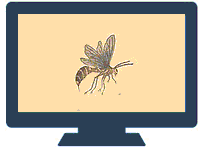Entomology, Department of

Department of Entomology: Distance Master of Science Projects
Date of this Version
2022
Document Type
Project
Citation
Master of Science Degree Project, Department of Entomology, University of Nebraska-Lincoln, 2022.
Abstract
The International Panel on Climate Change (IPCC) has consistently predicted rising global temperatures since it began reporting in 1988. Researchers have noted that climate extremes have been identified beginning in the 1990s and are apparent in various climate indicators. The most recent IPCC reports show that the rate of warming has sped up considerably, and that global warming will increase from pre-industrial levels by 1.5 degrees Celsius in the next 30 years, and possibly by 2 degrees C if considerable mitigation efforts are not put in place (IPCC, 2021). By 2017 global temperatures had already increased by about 1 degree Celsius from pre-industrial levels. Since the 1970s CO2 emissions have increased by 90%, and the rate of surface temperature has doubled in the past 50 years (EPA, 2017).
Global warming does not just increase surface temperatures. Complex interactions due to a warmer earth will have an impact on most if not all earth systems. Impacts can and will include, for example, increased rainfall in some regions and longer drought periods in others, and more severe and extreme weather events. These changes will result in a loss of habitat and host plants for many insects, while also increasing the number and duration of pest outbreaks. “The appearance of novel climates poses an important challenge for scientists trying to predict the ecological and evolutionary responses of organisms to climate change” (Kingsolver et al, 2011, p. 719).


Comments
Copyright © 2022 Amy Catalano